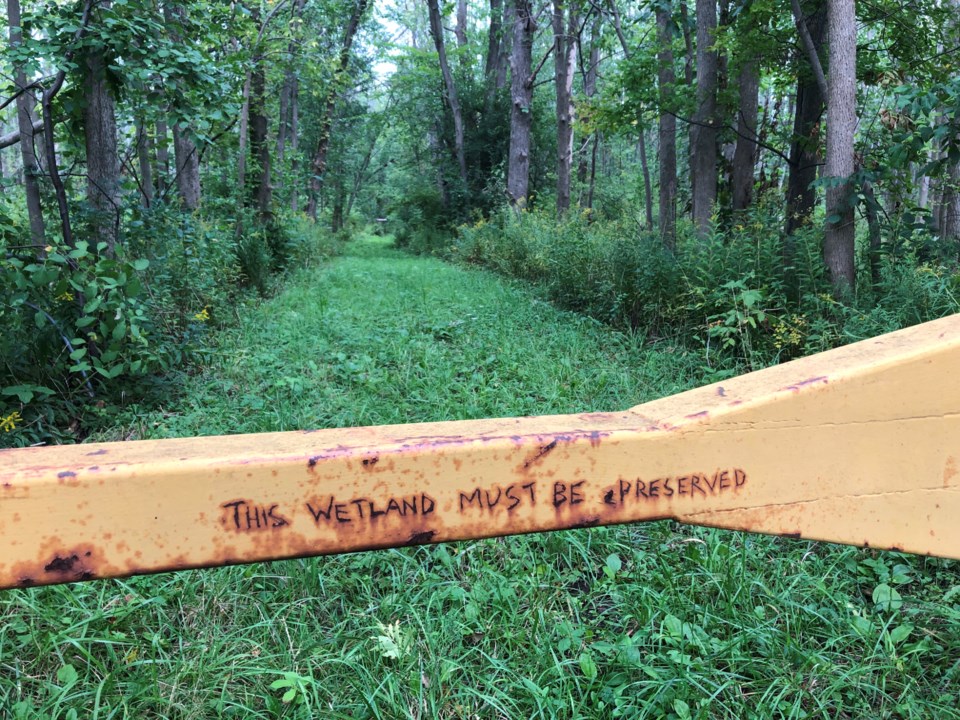The Town of Collingwood has submitted a list of comments to the province, hoping to influence the changes about to be made as a result of Bill 23.
At least two members of The Blue Mountain Watershed Trust see this as a critical time for everyone to get involved to prevent potential damage that could be caused by the new policies that will come from the bill.
While the provincial government has already passed the legislation, the changes to policy related to town planning, and environmental protections for lands are yet to be announced with commenting open for a few more days.
One of the main points being made by the town ask the province to keep intensification of housing developments in areas already built up (also called settlement areas) and continue to limit growth in rural areas to protect the rural and agricultural land base and natural heritage system.
Bill 23 is being touted by the Ontario PCs as a means to get more homes built faster, thereby making housing more affordable and accessible to new and existing residents of the province.
Read more: 'Grossly heavy-handed,' former mayor condemns Bill 23
However, the town and several other commenting agencies argue this won’t be accomplished without clear definitions of affordability.
A report by town planner Nathan Wukasch and director of planning Summer Valentine, summarizing Collingwood’s comments on the bill states that increased housing supply doesn’t necessarily mean more affordability.
The town asks the province to prioritize housing affordability over housing supply, and support legislative tools to implement affordability as a priority.
In other words, “enabling rather than prescriptive policies,” that will give municipalities the flexibility to develop policies and zoning permissions to meet local needs and context.
And speaking of affordability, the town is calling on the province to provide a “unified definition” for affordable and attainable housing, noting there is “considerable confusion and substantial differences” in current provincial policy compared to the definitions in Bill 23.
One of the most contentious changes in Bill 23 has been the province’s restructuring of natural hazard assessment, taking it out of the hands of conservation authorities and putting the responsibility on individual municipalities. Significantly, this would apply to floodplain mapping and watershed assessment.
“Natural heritage system planning and protection from natural hazards should continue to be managed/regulated on a watershed basis, and not at the local municipal level,” states the town’s staff report, which has been endorsed by council.
Chris Mifflin and Duncan Bristow of the Blue Mountain Watershed Trust are particularly worried about the changes proposed to wetland assessment and floodplain management.
“If there’s a time and a place for you to step up and spend more time and energy trying to coordinate with other similar-minded people, to put some of your money where your mouth is, it feels to me as though Bill 23 is that time in Ontario,” said Mifflin. “I’m a 66-year-old guy, a professional engineer … and I have never felt this strong. I have never felt as motivated to work and consolidate my energies with other people’s energies to try and get a change.”
While he has been interested, for years, in preserving the local Silver Creek Wetlands, for him, the changes that could come from Bill 23 present a threat beyond Silver Creek.
He questions who will be responsible if there is flooding and homes have been build on flood plains, or homes built in one spot cause flooding in neighbourhoods. Without the conservation authority’s involvement, he’s worried the floodplain mapping and planning will be left in the hands of consultants paid by the developers, and municipalities that are already overwhelmed with development applications.
He also noted that the province intends, through Bill 23, to eliminate higher-tier governments from the local planning process, which he worries will create a more piecemeal approach to stormwater management.
Bristow said he’s very concerned about changes to the way wetlands are assessed. In particular, it appears Bill 23 will change the process so that a cluster of wetlands wouldn’t count as one network anymore, but individual wetlands, making them harder to protect as they won’t be deemed “provincially significant.”
“Various aspects of Bill 23 are trying to chew away at the edges of our protections of wetlands and endangered species,” said Bristow. “It’s eroding the protections we’ve come to rely on.”
Bill 23 asks conservation authorities to identify pieces of land under their protection as “suitable for development.”
There’s also a possibility that the presence of endangered species will no longer be reason enough on its own to prevent development.
Bill 23 is large with many unknown impacts to come. If you would like to provide comments on the bill, you can write a letter to MPP Brian Saunderson.
You can find out more about the Blue Mountain Watershed Trust and get involved in their work on Bill 23 on their website here.
Ontario Nature also has a campaign opposing the bill, as does a group of Ontario business owners calling for the bill to be repealed.
There is great opposition to the bill, including from the Chiefs of Ontario, Ducks Unlimited, conservation authorities, etc.



